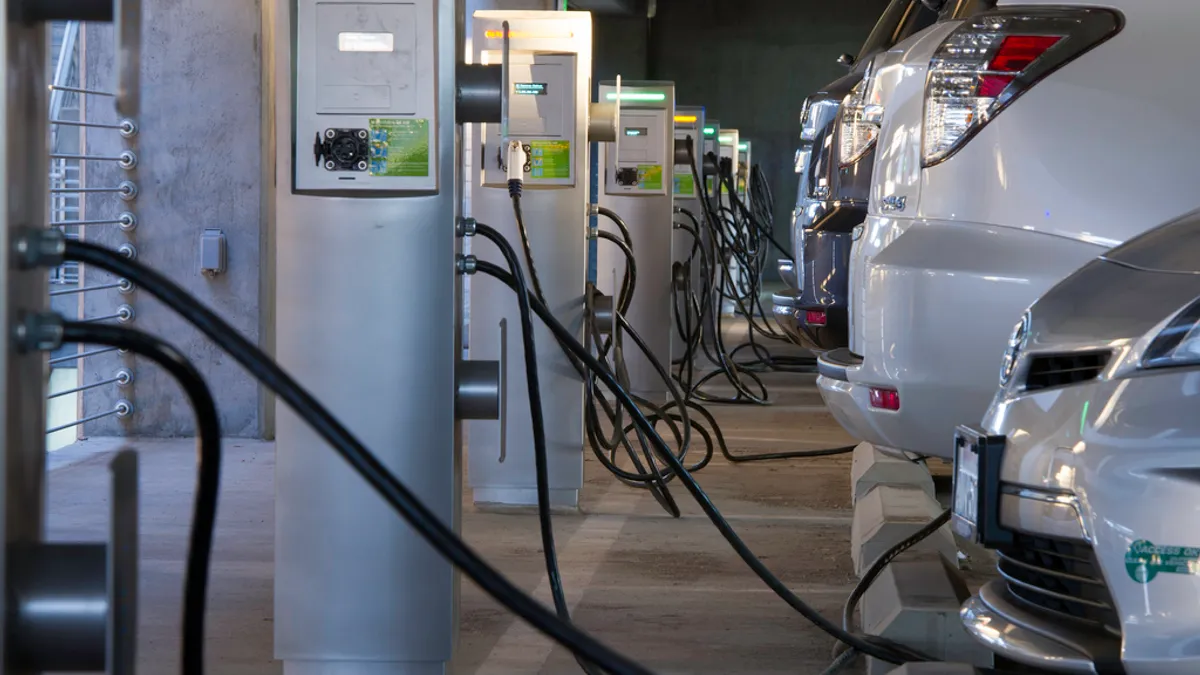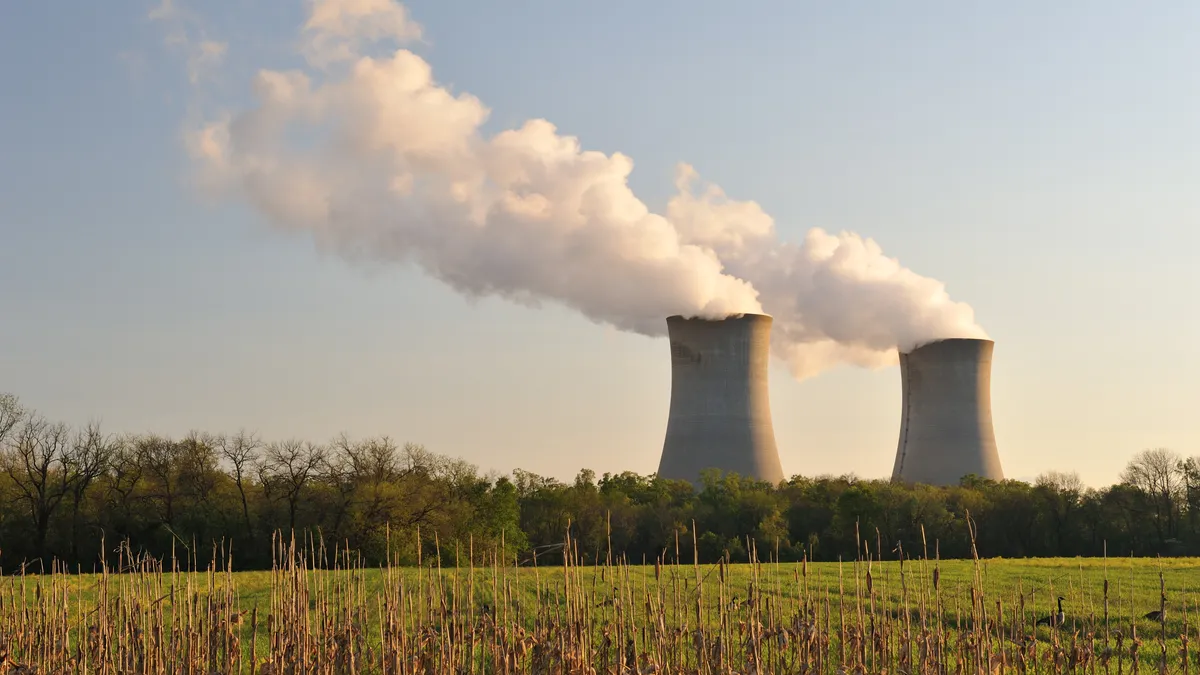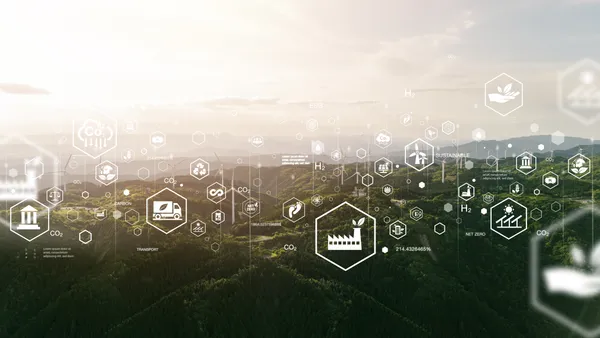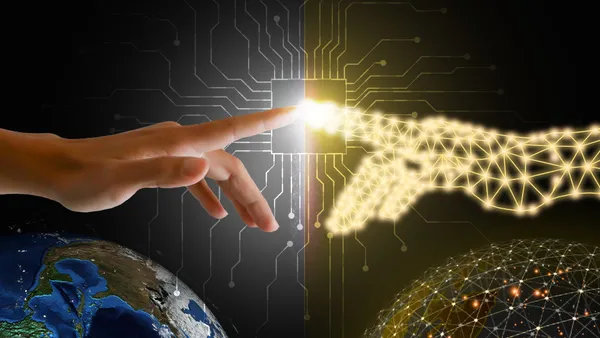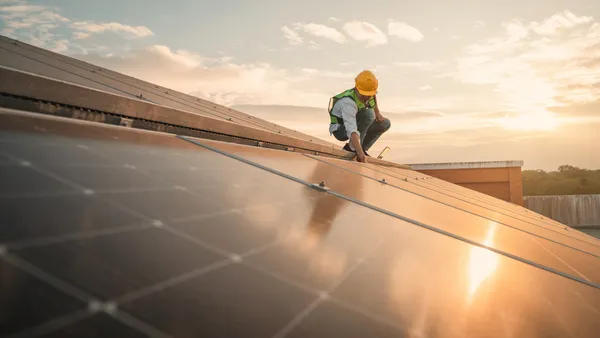Dive Brief:
- The White House has unveiled a plan to accelerate the adoption of electric vehicles, including making available up to $4.5 billion in loan guarantees and inviting applications to support the commercial-scale deployment of charging infrastructure.
- The plan also calls for identifying zero emission and alternative fuel corridors, and studying where a national network of electric vehicle fast charging stations should be located.
- President Obama's plan also calls for state, county and municipal governments to partner with the federal government to procure electric vehicle fleets at a discounted value.
Dive Insight:
Less than two weeks after the Department of Energy’s first Sustainable Transportation Summit, the White House has rolled out an aggressive plan to boost EV adoption that hinges on the development of more charging stations, while also pressing local governments to invest in cleaner fleets.
The plan will help the United States "combat climate change, increase access to clean energy technologies, and reduce our dependence on oil," according to a White House fact sheet on the initiative.
For utilities, properly-sited charging stations and rate design price signals can help utilities build a cleaner, more resilient grid, according to a new report from the Rocky Mountain Institute (RMI).
“If every light vehicle was an EV, total U.S. electricity demand would increase about 25%," Chris Nelder, a manager in RMI’s electricity program and the paper’s principal author told Utility Dive earlier this year. "But it could be done without increasing peak generation and it could reduce the unit cost of electricity by eliminating the need to invest in peaking capacity.”
Key to the plan is $4.5 billion in loan guarantees for commercial-scale deployment of charging facilities. The DOE’s Loan Program Office has issued a supplement to its Title XVII Renewable Energy and Efficient Energy Projects Solicitation, "clarifying that certain electric vehicle (EV) charging facilities – including associated hardware and software – is now an eligible technology under the solicitation."
The initiative also launches a process under the Fixing America’s Surface Transportation Act to designate alternative fuel corridors. The Department of Transportation is soliciting nominations from state and local officials; the process will consider the existing infrastructure and the demand for fueling stations. "DOT will also evaluate applications based on their ability to reduce emissions and collaborate across the public and private sector," the White House said.
The DOE will work with industry and the National Laboratories to study the vehicle, battery, infrastructure, and economic implications of direct current fast charging of up to 350 kW, which is expected to be completed by the end of 2016. The systems can charge a 200 mile range battery in less than 10 minutes.
Interest in electric vehicles is growing quickly from utilities, but "range anxiety" is a significant barrier.
Duke Energy earlier this month announced it would invest $1 million to fund public charging stations, and another half million for electric bus charging for transit agencies. The new charging stations will increase North Carolina's stations by 30%.
As part of the EV Charging Infrastructure Support Project, Duke Energy will pay 100% up to $5,000 per charge port; $20,000 per site, or $50,000 per city under the program.
"Over the past decade, Duke Energy has supported the development of several hundred electric vehicle charging stations in North Carolina," David Fountain, Duke Energy's North Carolina president, said in a statement. "Adoption of EVs depends on a robust infrastructure for consumers."



